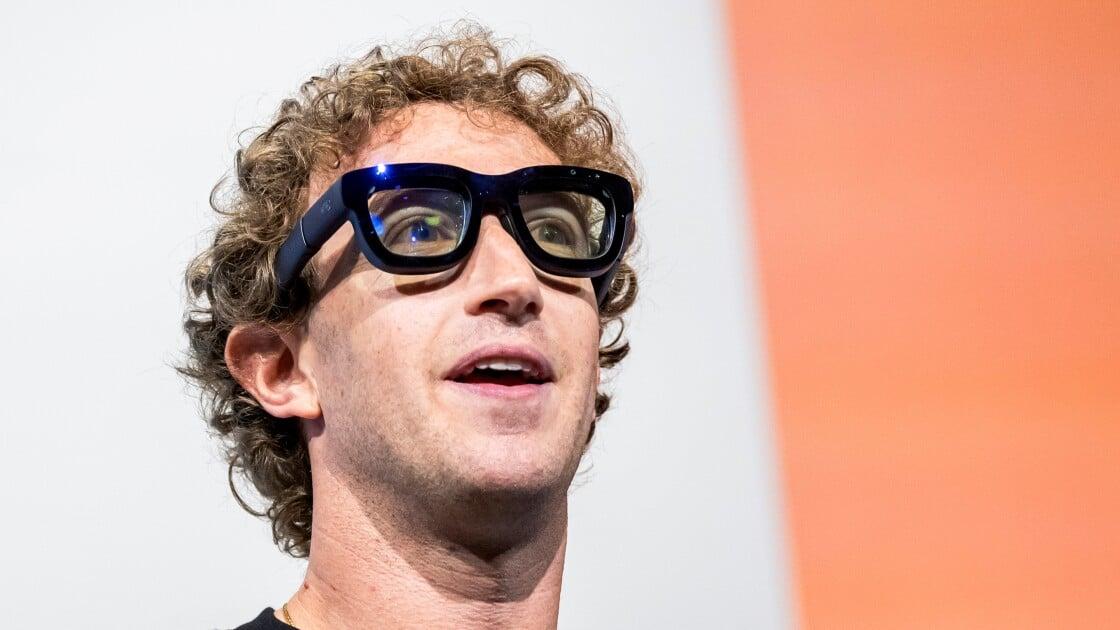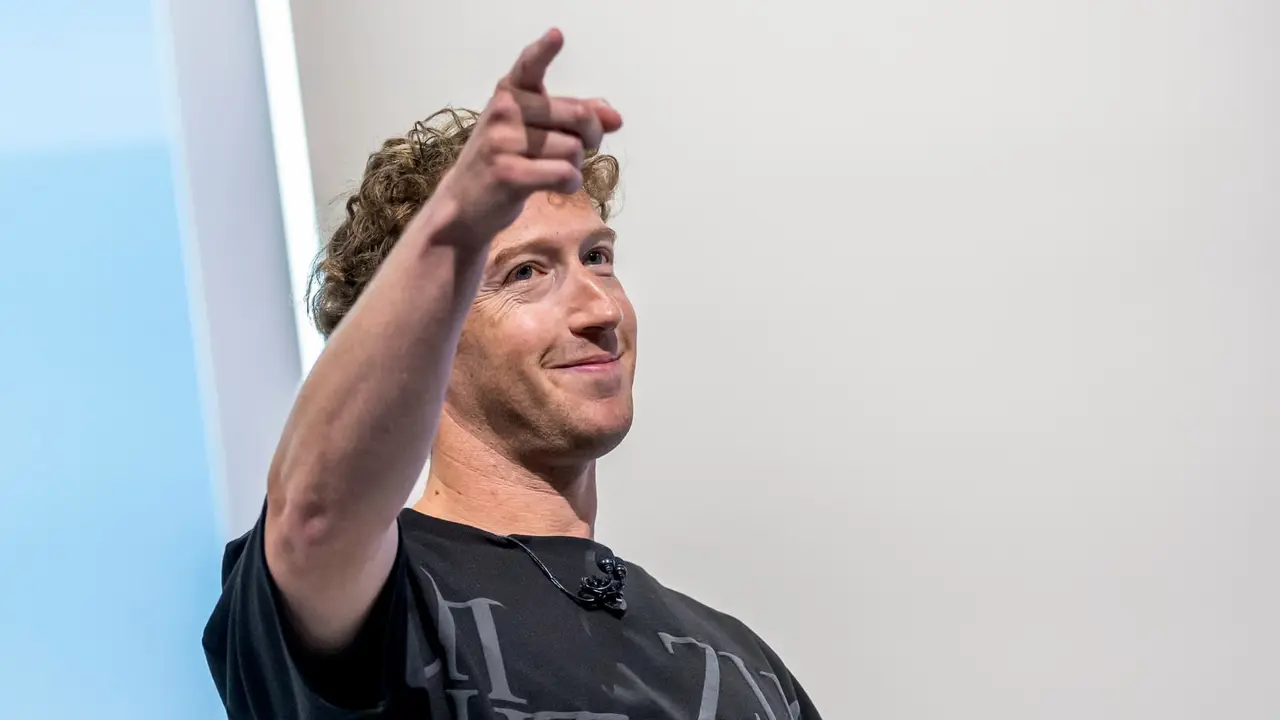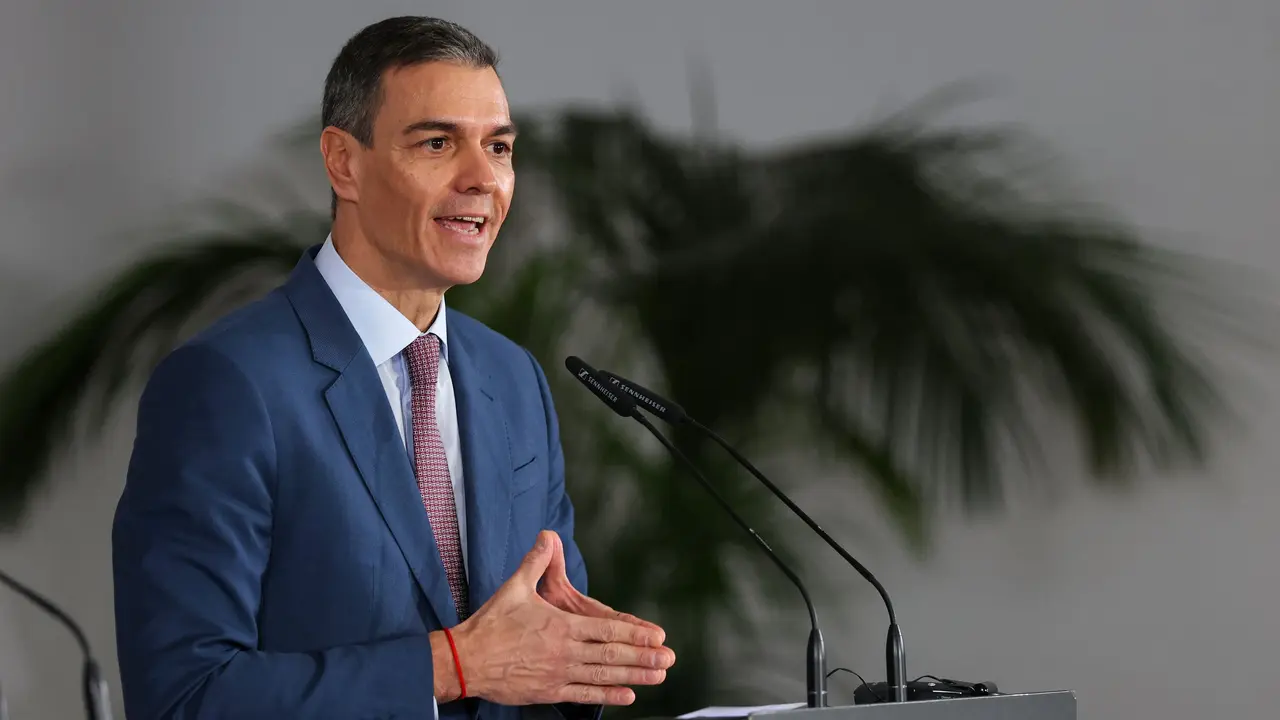Meta CEO's AI Friend Vision Sparks Debate: Hinge CEO Warns of 'Junk Food' for Relationships
2 Sources
2 Sources
[1]
Mark Zuckerberg's dream for AI chatbots to become your friend is as unhealthful as 'junk food,' Hinge CEO says
As the loneliness epidemic continues to worsen in the U.S., people are coming up with new ways to combat the phenomenon that a former U.S. surgeon general said is linked to increased risk of heart disease, depression, cognitive decline, dementia, and early mortality. Meta CEO Mark Zuckerberg recently said the average American has fewer than three friends, but the demand for them is "meaningfully more" at about 15. He suggested that as AI becomes more personalized and gets to know the user better, it would "be really compelling," and AI could even become your friend. "I think people are going to want a system that knows them well and that kind of understands them in the way that their feed algorithms do," Zuckerberg said in May during an onstage interview with Stripe co-founder and president John Collison at Stripe's annual conference. Hinge CEO Justin McLeod took this to mean Zuckerberg believes AI chatbots can become your friends. "I think that's honestly an extraordinarily reductive view of what a friendship is, that it's someone there to say all the right things to you at the right moment," McLeod recently told The Verge. "While it will feel good in the moment, like junk food basically, to have an experience with someone who says all the right things and is available at the right time, it will ultimately, just like junk food, make people feel less healthy and more drained over time." "It will displace the human relationships that people should be cultivating out in the real world," McLeod continued. When asked for a reaction in response to McLeod's comments, a Meta spokesperson pointed Fortune to other comments Zuckerberg had made about AI being used in personal life. One such use case is AI being used to talk through difficult conversations they need to have with people in their life, Zuckerberg said in an interview with podcaster Dwarkesh Patel. "But the average person wants more connectivity [and] connection than they have. So there's a lot of questions that people ask of stuff like, okay, is this going to replace in-person connections or real life connections?" Zuckerberg questioned. "And my default is that the answer to that is probably no." McLeod has been much more conservative about AI-centered relationships, calling the phenomenon "playing with fire." Still, Hinge, as part of Match Group, is using AI for coaching features that help users improve their profile, choose better photos, and filter inappropriate messages before they're sent. "We want to continue at Hinge to champion human relationships, real human-to-human-in-real-life relationships, because I think they are an essential part of the human experience, and they're essential to our mental health," McLeod said. Gen Zers have also turned to AI for other personal services like therapy, which professionals warn against doing. "They're not experts, and we know that generative AI has a tendency to conflate information and make things up when it doesn't know," Vaile Wright, a licensed psychologist and senior director for the American Psychological Association's office of health care innovation, told Fortune's Marco Quiroz-Gutierrez. "So I think that, for us, is most certainly the number one concern."
[2]
Mark Zuckerberg Suggested AI Avatars Could Be Your Friends, Hinge Founder Justin McLeod Says Meta CEO Is 'Playing With Fire' - Meta Platforms (NASDAQ:META)
Hinge founder Justin McLeod says Silicon Valley's push to offer artificial-intelligence "friends" risks worsening, not curing, the loneliness crisis and likened Mark Zuckerberg's vision of AI companionship to eating junk food. What Happened: "He [Zuckerberg] said we're going to give them AI chatbots. That he believes that AI chatbots can become your friends. I think that's honestly an extraordinarily reductive view of what a friendship is," McLeod told Nilay Patel on The Verge's Decoder podcast. "The most rewarding parts of being in a friendship are being able to be there for someone else, to risk and be vulnerable, to share experiences with other conscious entities," he added. The remarks directly challenged Zuckerberg, who told podcaster Dwarkesh Patel last month that "the average person has demand for meaningfully more" friends and suggested AI avatars could fill the gap. McLeod called that premise "playing with fire," warning that always-available bots will "ultimately, just like junk food, make people feel less healthy and more drained over time. It will displace the human relationships that people should be cultivating out in the real world." See also: Sam Altman Crushes OpenAI-Microsoft Feud Rumors, Hails 'Really Wonderfully Good' Bond With Satya Nadella Meta Platforms Inc. META, which has rolled out AI characters across Facebook, Instagram and a standalone Meta AI app, says nearly a billion users now interact with its assistants each month. Why It Matters: That said, the McLeod isn't anti-algorithm. Hinge already uses machine learning to coach users on photos and profile prompts, and McLeod said future tools will feel "much closer to a personal matchmaking service," producing curated lists of compatible matches and nudging daters before a first meeting. He compared such coaching to a trainer at the gym -- for guidance, not a replacement. Meta's been pushing hard on the AI front over the past year, including additions to its AI search assistant and a more recent institution of a 'Superintelligence' lab. It is also worth noting that the company had earlier tried celebrity chatbots that were shuttered after mixed reviews. Photo Courtesy: Harmony Video Production on Shutterstock.com Read next: Elizabeth Warren Says The Tax Break For Mark Zuckerberg's Meta Is So Bountiful Under Trump's 'Big Beautiful Bill' That $35 Copay From Each American Won't Still Match It METAMeta Platforms Inc $708.80-0.48% Stock Score Locked: Want to See it? Benzinga Rankings give you vital metrics on any stock - anytime. Reveal Full Score Edge Rankings Momentum 85.45 Growth 92.41 Quality 87.52 Value 25.91 Price Trend Short Medium Long Overview Market News and Data brought to you by Benzinga APIs
Share
Share
Copy Link
Mark Zuckerberg's proposal for AI chatbots as friends faces criticism from Hinge CEO Justin McLeod, who likens it to 'junk food' for relationships. The debate highlights concerns about AI's role in addressing loneliness and its impact on human connections.
AI Friendships: Zuckerberg's Vision Meets Criticism
In a recent development that has sparked debate in the tech and social media world, Meta CEO Mark Zuckerberg's proposal for AI chatbots to become friends has faced sharp criticism from Hinge CEO Justin McLeod. This controversy highlights the ongoing discussion about AI's role in addressing the growing loneliness epidemic and its potential impact on human relationships
1
.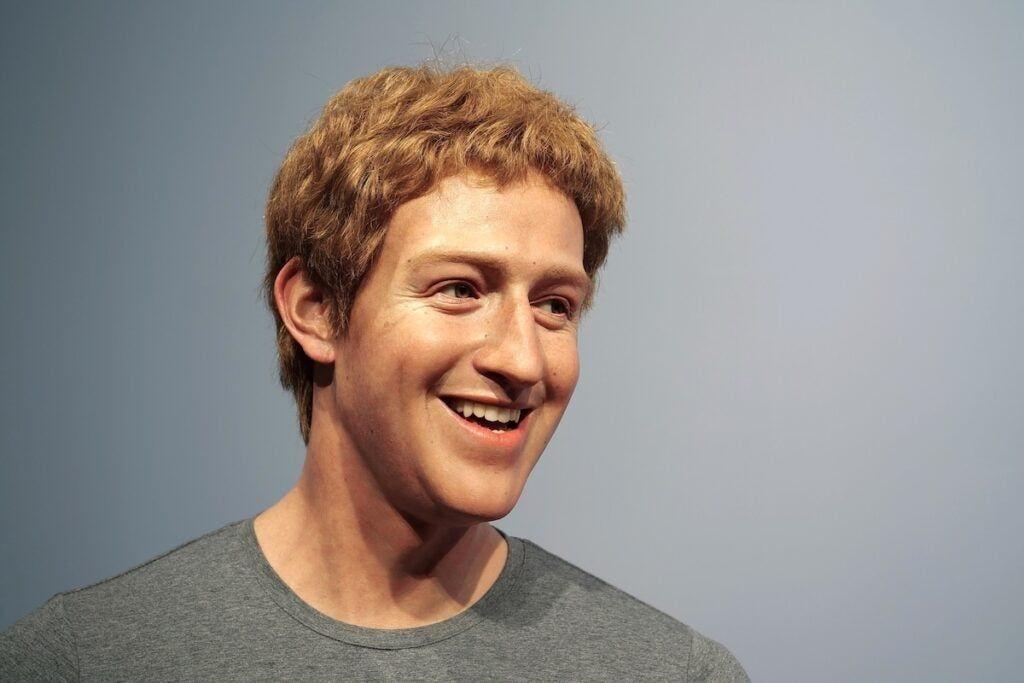
Source: Benzinga
Zuckerberg's AI Friend Proposal
Mark Zuckerberg, citing that the average American has fewer than three friends but desires around 15, suggested that AI could fill this gap. He proposed that as AI becomes more personalized and understands users better, it could become "really compelling" and even evolve into a friend-like entity
1
.Zuckerberg elaborated on this vision during a Stripe conference, stating, "I think people are going to want a system that knows them well and that kind of understands them in the way that their feed algorithms do"
1
.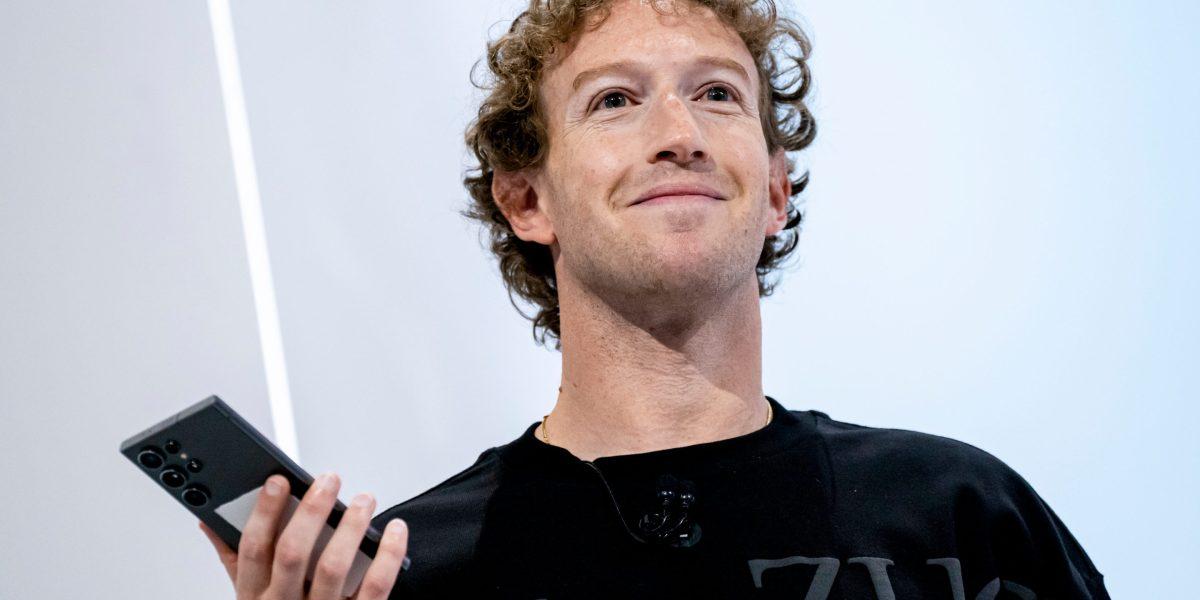
Source: Fortune
Hinge CEO's Rebuttal
Justin McLeod, CEO of dating app Hinge, strongly criticized Zuckerberg's idea, comparing AI friendships to "junk food" for relationships. McLeod argued that Zuckerberg's view of friendship is "extraordinarily reductive," stating that while AI interactions might feel good in the moment, they would ultimately leave people feeling "less healthy and more drained over time"
1
.McLeod expressed concern that AI friendships could "displace the human relationships that people should be cultivating out in the real world"
2
.The Broader AI Debate
This disagreement reflects a larger debate about AI's role in personal relationships and mental health. While Meta has been pushing hard on the AI front, with nearly a billion users now interacting with its AI assistants monthly, concerns persist about the potential negative impacts of AI on human connections
2
.Related Stories
AI in Dating and Relationships
Despite his criticism of AI friendships, McLeod acknowledges the potential benefits of AI in the dating sphere. Hinge, like other dating apps, uses machine learning to coach users on profile creation and photo selection. McLeod envisions future AI tools feeling "much closer to a personal matchmaking service," but emphasizes that these should be used for guidance, not as a replacement for human connections
2
.Concerns from Mental Health Professionals
The debate extends beyond the tech industry, with mental health professionals expressing concerns about the use of AI for personal services like therapy. Vaile Wright, a licensed psychologist, warned against relying on AI for mental health support, citing concerns about the technology's tendency to conflate information and make things up when uncertain
1
.As AI continues to evolve and integrate into various aspects of our lives, the conversation about its role in personal relationships and mental health is likely to intensify, with tech leaders, mental health professionals, and users all contributing to this crucial dialogue.
References
Summarized by
Navi
Related Stories
Recent Highlights
1
ByteDance Faces Hollywood Backlash After Seedance 2.0 Creates Unauthorized Celebrity Deepfakes
Technology

2
Microsoft AI chief predicts artificial intelligence will automate most white-collar jobs in 18 months
Business and Economy

3
Google reports state-sponsored hackers exploit Gemini AI across all stages of cyberattacks
Technology

